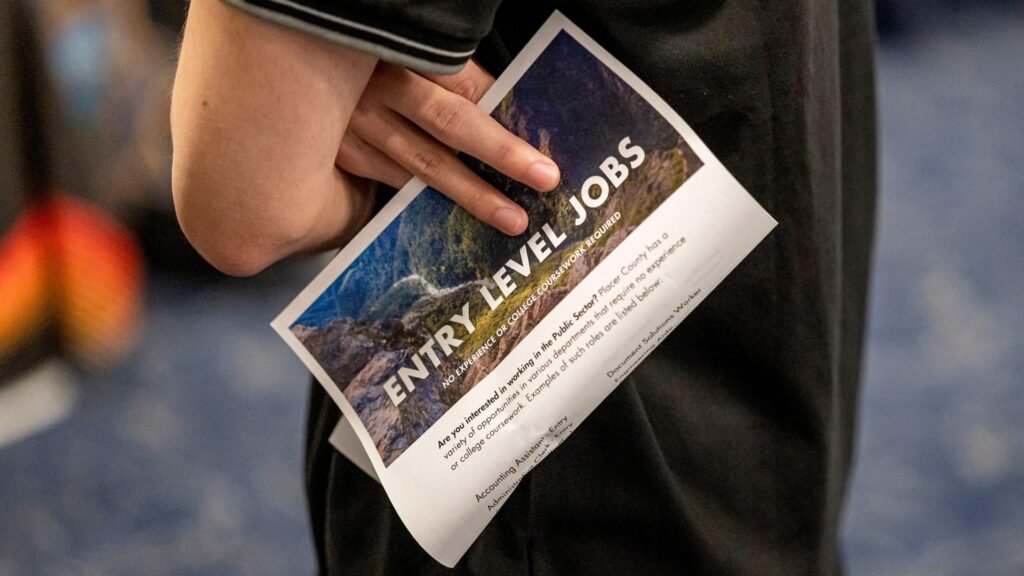
President Donald Trump on Wednesday night asked the Supreme Court to quickly accept and rule on an appeal seeking to overturn lower court decisions that found most of his tariffs are illegal.
The request comes five days after the U.S. Court of Appeals for the Federal Circuit, in a 7-4 ruling, said that Trump overstepped his authority when he implemented the steep levies on virtually every country.
That decision threw a central pillar of Trump’s trade agenda into doubt.
Trump is asking the Supreme Court to hear arguments on his appeal in early November and issue a final decision on the legality of the disputed tariffs soon afterward, according to filings obtained by NBC News from the plaintiffs in the case.
Normally, the Supreme Court would take as long as early next summer to issue such a decision.
Treasury Secretary Scott Bessent, in a declaration attached to Trump’s request, said the appeals court ruling “gravely undermines the President’s ability to conduct real-world diplomacy and his ability to protect the national security and economy of the United States,” the filing noted.
Filings by Trump also say that “delaying a ruling until June 2026 could result in a scenario in which $750 billion-$1 trillion in tariffs have already been collected, and unwinding them could cause significant disruption.”
Trump used the International Emergency Economic Powers Act, or IEEPA, to impose steep levies on trading partners, declaring the United States’ federal deficit with other nations a national emergency.
But the appeals court said that “tariffs are a core Congressional power,” not a presidential authority.
“The core Congressional power to impose taxes such as tariffs is vested exclusively in the legislative branch by the Constitution,” the court said.
The appeals court paused its ruling from taking effect until Oct. 14, giving Trump time to ask the Supreme Court to hear his appeal, and the high court to potentially issue an indefinite stay of the decision until it resolves the appeal.
Jeffrey Schwab, senior counsel at the Liberty Justice Center, which represented plaintiffs who successfully sued to block the tariffs, in a statement said, “The government has now asked the U.S. Supreme Court to review this case. Both federal courts that considered the issue agreed that IEEPA does not give the President unchecked tariff authority.”
“We are confident that our legal arguments against the so‑called ‘Liberation Day’ tariffs will ultimately prevail,” Schwab said.
“These unlawful tariffs are inflicting serious harm on small businesses and jeopardizing their survival. We hope for a prompt resolution of this case for our clients.”
U.S. President Donald Trump gestures during a cabinet meeting at the White House in Washington, D.C., U.S., August 26, 2025.Jonathan Ernst | ReutersPresident Donald Trump on Wednesday night asked the Supreme Court to quickly accept and rule on an appeal seeking to overturn lower court decisions that found most of his tariffs are illegal.The request comes five days after the U.S. Court of Appeals for the Federal Circuit, in a 7-4 ruling, said that Trump overstepped his authority when he implemented the steep levies on virtually every country. That decision threw a central pillar of Trump’s trade agenda into doubt.Trump is asking the Supreme Court to hear arguments on his appeal in early November and issue a final decision on the legality of the disputed tariffs soon afterward, according to filings obtained by NBC News from the plaintiffs in the case.Normally, the Supreme Court would take as long as early next summer to issue such a decision.Treasury Secretary Scott Bessent, in a declaration attached to Trump’s request, said the appeals court ruling “gravely undermines the President’s ability to conduct real-world diplomacy and his ability to protect the national security and economy of the United States,” the filing noted.Filings by Trump also say that “delaying a ruling until June 2026 could result in a scenario in which $750 billion-$1 trillion in tariffs have already been collected, and unwinding them could cause significant disruption.”Read more CNBC politics coverageJudge voids $2.2 billion Harvard funding freeze by Trump administrationGOP senators not in rush to consider Cook replacement on Fed until case resolvedNewsmax sues Fox News for allegedly abusing monopoly powerTrump calls Epstein files distraction from success, victims call for their releaseTrump appeals ruling that National Guard deployment to LA broke the lawAbbe Lowell: The veteran defense lawyer squaring off against Trump in Federal Reserve fightTrump will ask Supreme Court for ‘expedited ruling’ on tariffs appealHundreds of economists defend Fed’s Lisa Cook against Trump firing bidTrump can’t use National Guard, military in California to enforce laws, judge rulesSCO summit 2025: Key takeaways from Beijing’s push to reshape global order’Gaza Riviera’: Post-war redevelopment plan sees ‘voluntary relocation’ of millionsTrump’s immigration push puts California’s immigrant labor force at riskTrump used the International Emergency Economic Powers Act, or IEEPA, to impose steep levies on trading partners, declaring the United States’ federal deficit with other nations a national emergency.But the appeals court said that “tariffs are a core Congressional power,” not a presidential authority.”The core Congressional power to impose taxes such as tariffs is vested exclusively in the legislative branch by the Constitution,” the court said.The appeals court paused its ruling from taking effect until Oct. 14, giving Trump time to ask the Supreme Court to hear his appeal, and the high court to potentially issue an indefinite stay of the decision until it resolves the appeal.Jeffrey Schwab, senior counsel at the Liberty Justice Center, which represented plaintiffs who successfully sued to block the tariffs, in a statement said, “The government has now asked the U.S. Supreme Court to review this case. Both federal courts that considered the issue agreed that IEEPA does not give the President unchecked tariff authority.””We are confident that our legal arguments against the so‑called ‘Liberation Day’ tariffs will ultimately prevail,” Schwab said. “These unlawful tariffs are inflicting serious harm on small businesses and jeopardizing their survival. We hope for a prompt resolution of this case for our clients.”Adblock test (Why?)
US Top News and Analysis



